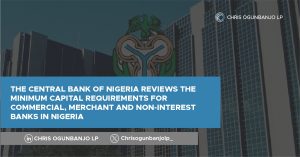NLNG’s Force Majeure Announcement
On the 17th of October 2022, the Nigeria Liquified and Natural Gas Company Limited (the “NLNG”) through its General Manager for External Relations and Sustainable Development, Andy Odeh declared force majeure on product supplies from its production facilities on Bonny Island, Nigeria following the declaration of force majeure by all its upstream gas suppliers. This, it stated, was as a result of the high-water levels in operational areas due to the floods that affected many parts of the country, leading to a shut-in of gas production and a resultant/consequent significant disruption of gas supply to NLNG.[1] The notice of the upstream gas suppliers’ declaration of force majeure consequently led the NLNG to activate the force majeure clauses in its Sales and Purchase Agreements with other Parties.
The NLNG is a multi-national company and is currently a party to more than 16 long-term Sale and Purchase Agreements (SPAs) with 10 buyers in Nigeria, it is also estimated that the NLNG controls about 6 percent of the global LNG trade.[1]
In this article, an overview of the importance of force majeure clauses in contracts will be undertaken, putting the NLNG’s force majeure activation into further perspective, as well as a short analysis of the ensuing rights and obligations that may arise from triggering a force majeure clause in a contract. Relevant recommendations are also proffered to encourage corporate entities and individuals involved in typical Supply, Sales, and Purchase Agreements to adopt force majeure provisions to address the happening of the unexpected, or situations reasonably not contemplated in their ordinary course of business which would affect their ability to perform their obligations under the Agreement.
What is Force Majeure?
Simply put, Force Majeure is a contractual provision allocating the risk of loss if performance becomes impossible or impracticable, especially as a result of an event or effect that the parties to a contract could not have anticipated or controlled.[2] Such events include acts of God, outbreak of war, natural disasters, national/industry-wide strikes, compliance with governmental laws, regulations and orders amongst other things that may be expressly agreed upon by parties to a contract and that the parties could not have reasonably anticipated or put mitigating factors in place to address the occurrence of same.
The Relationship between Force Majeure and the Doctrine of Frustration
The origin of Force Majeure can be traced to the common law doctrine of frustration. The doctrine of frustration makes provision for the discharge of a contract where subsequent to its formation, a change in circumstances makes it legally, physically, or commercially impossible for a party to fulfill the contract.[1] In practice, courts have stated what events will be treated as “frustrating events” and they include acts of God, subsequent legal changes, war, destruction or government requisition of the subject matter of the contract, cancellation of an expected event, and other miscellaneous events.
In view of the above, it is important to note that whilst there is an interconnectedness between force majeure and the doctrine of frustration, force majeure unlike frustration does not discharge a contract in all cases.
The Necessity of the Inclusion of Force Majeure Clauses in Contracts
The Force Majeure clause is vital to contracts of any nature as it states the rights and obligations of parties in the event that a party is unable to perform its duties under a contract. For a force majeure clause to be effective, it must be properly drafted. An effective force majeure clause should contain the following essential components:
- A clear definition of which events are force majeure events; Typically, this should be as broad as possible, capturing every extent imaginable, and a catch-all phrase that encapsulates every likelihood of factors beyond the reasonable control of the party affected should certainly be included.
- The period within which the party affected by the force majeure is to notify the unaffected party of the occurrence of the force majeure; This is important as delay to report such a scenario is dangerous and inimical to the interests of the other party.
- A notice specifying the details of the force majeure event and the steps the affected party has taken to mitigate or ultimately stop the occurrence of the force majeure event. This will prevent parties from posturing flimsy instances as force majeure events.
- The clause should state that the effects of an act of negligence or omission by the party declaring force majeure do not constitute a force majeure event;
- The clause should provide that a party’s inability to pay should not amount to a force majeure event.
- The rights of both parties to suspend their obligations pending the end of the force majeure event;
- The right of the unaffected party to terminate the agreement after the lapse of a specified time period if the force majeure event.
Conclusion & Recommendations
The triggering of the force majeure provision by NLNG sheds light on the necessity to have a well-rounded and proper contract between parties to a contractual arrangement, and why it is important that the force majeure provision be adequately provided for and that such is properly drafted to reflect the intention of the respective parties and protect their legal, economic and commercial interests.
Thus, we highly commend the inclusion of a solid force majeure provision to legal entities making contracts of sales, purchase, and supply, as well as all forms of legal agreements, as where the unanticipated occurs, only the inclusion of the force majeure clause will fully protect the party who suffers same under the contract.
Should you require professional advice on any of the foregoing please contact Peter-Cole Onele and Adedamola Odubanjo. We would be more than happy to assist.
Click here to download the article.
References
[1] I. E. Sagay, Nigerian Law of Contract (2nd Edn, Spectrum Law Series 2009)
[1] (Nigeria LNG) https://www.nigerialng.com/the-company/Pages/Who-We-Are.aspx accessed 21 October 2022
[2] Garner Black’s Law Dictionary, 9th Edition, p. 746
[1] Ayodeji Adegboyega ‘NLNG declares force majeure over flooding’ (Premium Times, 18 October 2022) https://www.premiumtimesng.com/news/top-news/560253-nlng-declares-force-majeure-over-flooding.html accessed 21 October 2022



